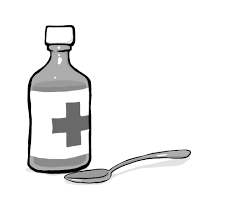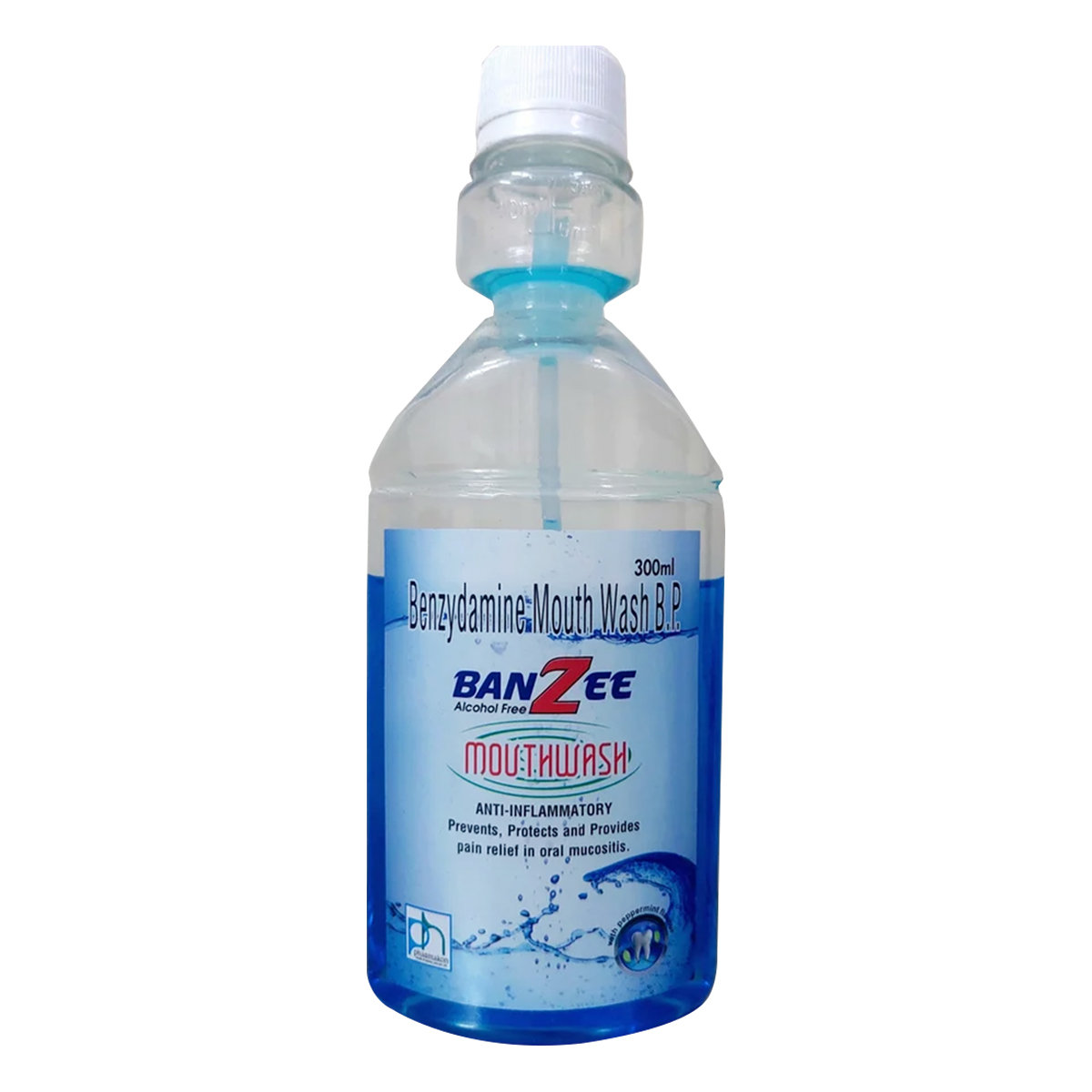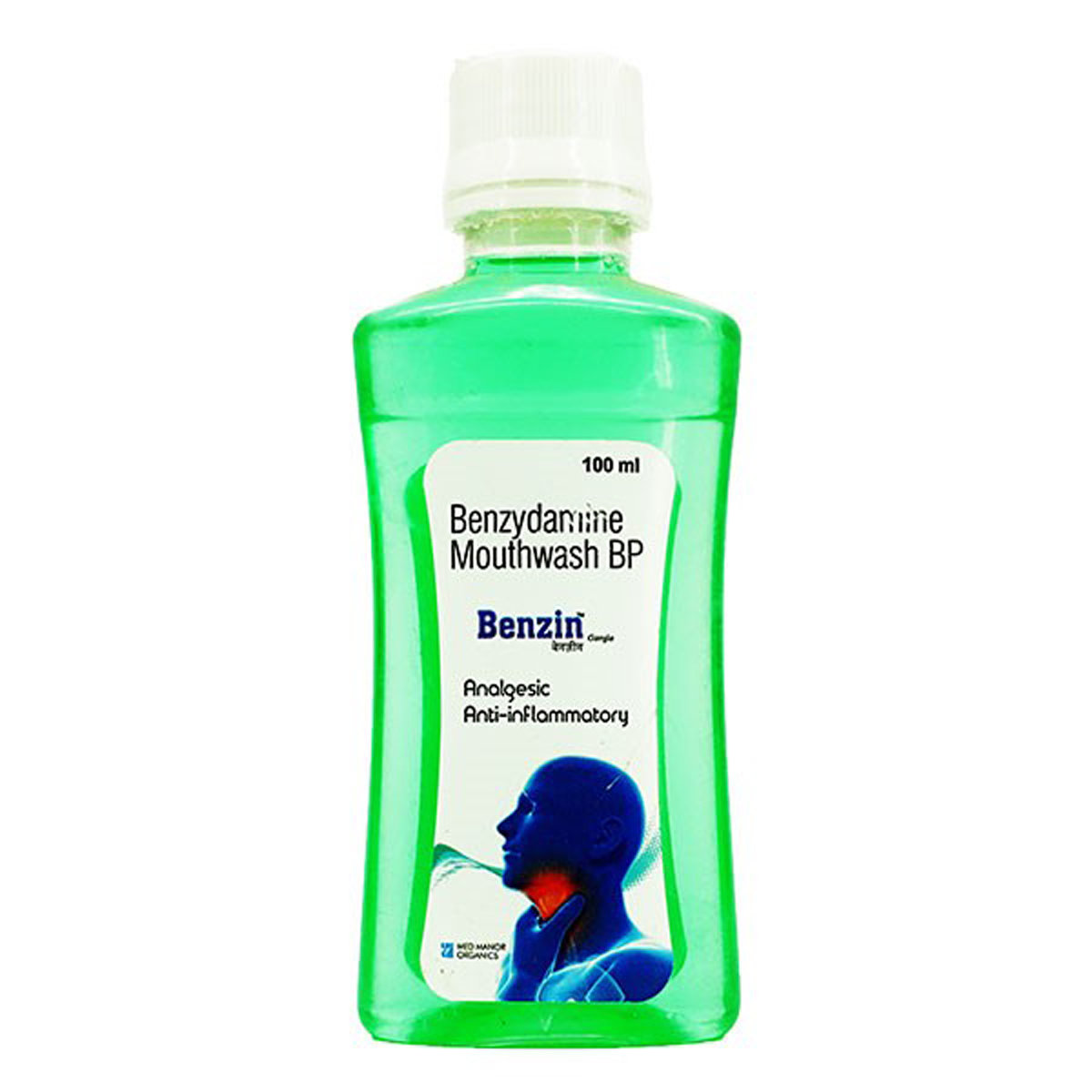Benzydamine
About Benzydamine
Benzydamine belongs to a group of medicines known as 'pain killers primarily used to relieve pain, discomfort, and inflammation of the mouth, gums, and throat. It is used to treat oral mucositis (inflammation due to radiotherapy or chemotherapy), and mouth sores. Pain is a symptom triggered by the nervous system, causing uncomfortable sensations in the body. Pain may be dull or sharp; it might be constant or may come and go.
Benzydamine contains Benzydamine which is used to relieve pain and discomfort. It works by blocking the release of chemicals (prostaglandins) that are responsible for pain sensation and inflammation. It also forms a coating over the sores and hence helps in providing relief from pain, discomfort, and symptoms of inflammation such as redness, swelling, or burning sensation due to mouth ulcers. Hence, it helps to perform daily activities with comfort.
Use Benzydamine as directed by your doctor. You may experience certain common side effects such as a burning sensation and skin irritation at the site of application in some cases. Most of these side effects do not require medical attention and will resolve gradually over time. However, you are advised to talk to your doctor if you experience these side effects persistently.
Do not take Benzydamine if you are allergic to Benzydamine, its ingredients, pain killers (NSAIDs), or local anesthetics. Inform your doctor if you are pregnant or breastfeeding. If you notice any skin rash or experience asthma, it could be due to an allergic reaction. Do not use the Benzydamine mouthwash continuously for more than 7 days unless recommended by your doctor or dentist. It is not recommended for use in children. Drink a small portion of water after small intervals to avoid dry mouth. Preferably eat sugar-free chew gums to keep mouth and throat moist. Stop wearing your dentures if you have sores in the mouth or gums.
Uses of Benzydamine
Medicinal Benefits
Benzydamine belongs to a group of medicines known as 'pain killers' also known as Non-Steroidal Anti-Inflammatory agents. It contains Benzydamine, primarily used to treat pain, discomfort, inflammation of the mouth, gums, and throat. It is used to treat oral mucositis (oral ulceration due to radiation therapy), mouth sores, mouth ulcers, pain after dental surgery and discomfort caused due to dentures. It provides relief from pain and swelling and aids in speeding up the healing process.
Directions for Use
Storage
Side Effects of Benzydamine
- Burning sensation
- Skin irritation at the site of application
Drug Warnings
Do not take Benzydamine if you are allergic to Benzydamine, its ingredients, pain killers (NSAIDs), or local anaesthetics. Inform your doctor if you are pregnant or breastfeeding. Also, mention all other medicines you are taking before using Benzydamine of your doctor. If you notice any skin rash or experience asthma, it could be due to an allergic reaction. Inform your doctor and do as advised. You should not use more medicine or apply it more often than instructed by your doctor. It is not recommended for use in children. Drink a small portion of water after small intervals to avoid a dry mouth. Preferably eat sugar-free chew gums to keep mouth and throat moist. Stop wearing your dentures if you have sores in the mouth or gums.
Drug Interactions
Drug-Drug Interactions: Benzydamine have interactions with medicines to treat alcohol addiction (disulfiram), to asthma (theophylline, salbutamol), painkillers (naproxen, ibuprofen).
Drug-Food Interactions: The consumption of alcoholic beverages should be avoided as it may lead to flushing, drowsiness, and dizziness.
Drug-Disease Interactions: Benzydamine is known to interact in patients with asthma, and alcohol addiction.
Drug-Drug Interactions Checker List:
Safety Advice

Alcohol
cautionAlcohol should not be taken while you are taking Benzydamine as it may lead to unpleasant side effects.

Pregnancy
cautionThe safety and efficacy of Benzydamine are not studied in pregnant women. So, take Benzydamine only if advised by a doctor.

Breast Feeding
cautionThe safety and efficacy of Benzydamine are not studied in breastfeeding women. So, take Benzydamine only if recommended by a doctor.

Driving
not applicableBenzydamine does not interfere with the ability to drive. If you feel dizzy or drowsy then do not drive or operate any machinery.

Liver
consult your doctorBenzydamine can be given in case of any liver impairment or problem. However, please consult your doctor in case of any concerns.

Kidney
consult your doctorBenzydamine can be given in case of any kidney impairment or problem. However, please consult your doctor in case of any concerns.

Children
cautionBenzydamine is not recommended for children below the age of 12 years. For children aged more than 12 years, take Benzydamine in dose and duration recommended.
Habit Forming
Diet & Lifestyle Advise
- Maintain good oral hygiene.
- Eat home-cooked food. Avoid eating spicy and oily food as it might increase the pain in case of mouth ulcers.
- Try not to eat any hard food if you had dental surgery, as pain might increase and lead to increased discomfort. Eat liquid food for some days to get early relief from pain.
- Don't eat foods or drink beverages with a lot of sugar as they may cause tooth decay.
- Brush your teeth 2 or 3 times a day for 2 to 3 minutes every time. Preferably use a toothbrush with soft bristles to avoid bleeding from gums. Also, the toothbrush should be air-dried to avoid any infection.
- If you have bad mouth sores, avoid a toothbrush and use a solution to brush.
Special Advise
- Do not use the Benzydamine mouthwash continuously for more than 7 days unless recommended by your doctor or dentist.
- Do not swallow Benzydamine and avoid touching eyes while using it.
- Keep your lips hydrated by using proper lip care to avoid cracking and drying.
- Preferably eat sugar-free chew gums to keep mouth and throat moist.
Patients Concern
Disease/Condition Glossary
Pain: It is a symptom triggered by the nervous system, causing uncomfortable sensations in the body. Pain may be dull or sharp; it might be constant or may come and go. The tolerance level of pain might vary from person to person. Pain can be generalized (overall body aches) or localized (affecting a specific area of the body). Pain can be considered a good thing as it helps us know that something is wrong in the body and thereby helps diagnose the condition. The common causes of pain include headache, muscle strain, cramps, cuts, bone fractures, arthritis, and stomach ache.
Oral Mucositis: It is tissue swelling in the mouth due to radiation therapy or chemotherapy (cancer treatment). The most common symptoms include mouth pain, mouth sores, infection, and bleeding (if you are getting chemotherapy).
Mouth Sores: Mouth sores are also known as a canker sores. It is normally small and painful lesions that develop in any soft tissue of the mouth or at the base of your gums. It can make eating, drinking, and talking uncomfortable. Generally, it takes 1-2 weeks for it to heal. It can be an indication of mouth cancer.
FAQs
Benzydamine belongs to a group of medicines known as 'pain killers' containing Benzydramine that works by blocking the release of chemicals (prostaglandins) responsible for pain sensation and inflammation. Hence, it helps provide relief from pain, discomfort and inflammation symptoms such as redness, swelling or burning sensation.
While using Benzydamine, make sure you do not swallow it. Be careful not to touch your eyes or splash the mouthwash in your eyes. If you get it in your eyewash it with cold water repeatedly. Also, do not use Benzydamine for more than 7 days continuously unless recommended by your doctor.
If you miss a dose of Benzydamine, take the missed dose as soon as you remember it. However, if it's almost time for the next dose, do not take a double dose to make up for a missed one.





